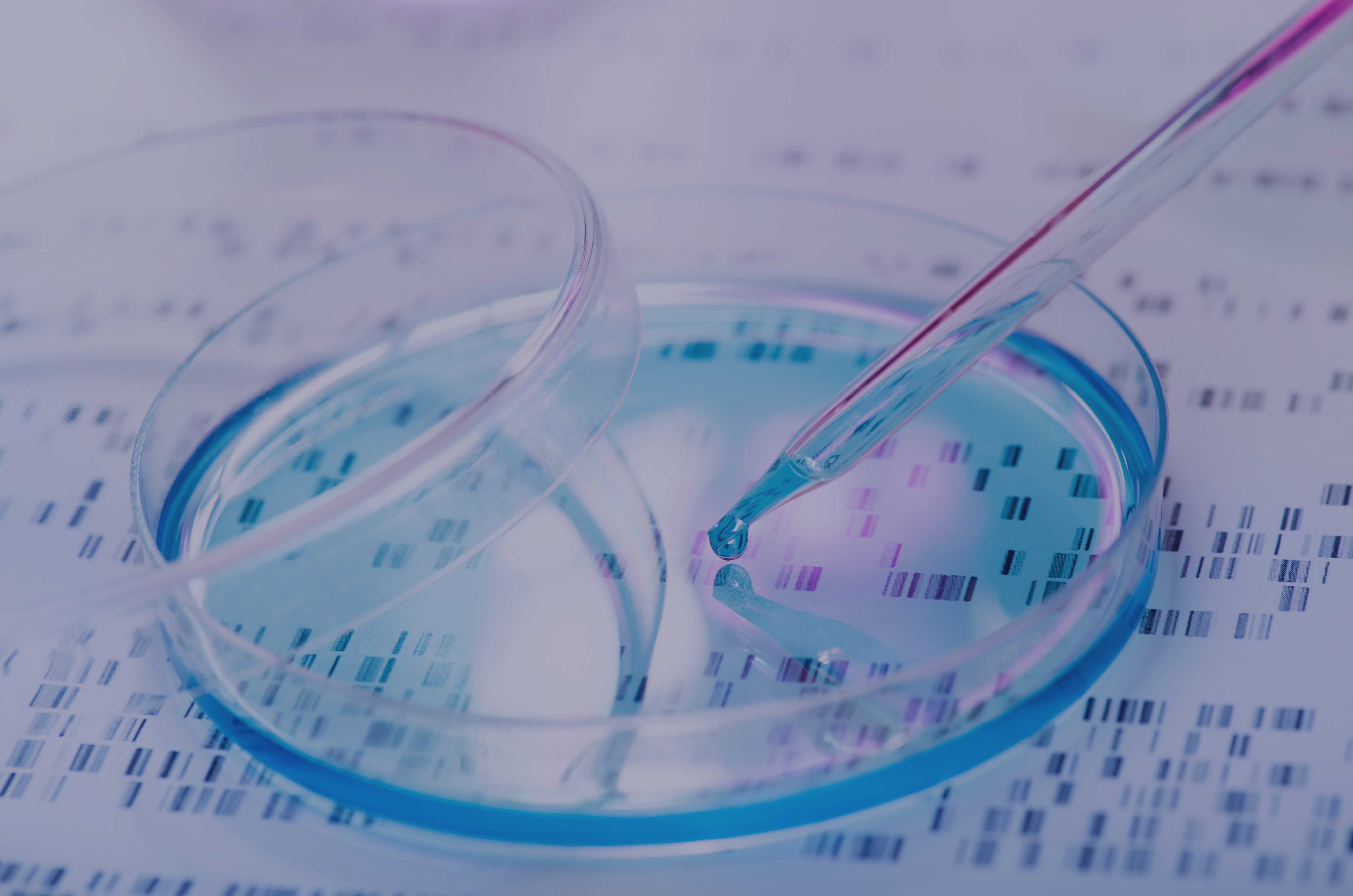We will contact you shortly to schedule a convenient appointment.
Fertigen Woman
Testing for genetic infertility in women.
Fertigen Woman involves the analysis of about 150 genes in which the presence of pathogenic mutations contributes to infertility in women. Awareness of the presence of infertility with a genetic basis makes it possible to take appropriate measures to obtain a pregnancy and give birth to a healthy child.
At theGyncentrum clinic, in addition to the Fertigen Woman test, we offer a panel of genetic tests for infertility aimed at men – Fertigen Men – which includes the analysis of about 80 gen es.

Who is the Fertigen Woman infertility panel for?
Get tested for genetic infertility factors if:
- You and your partner have been trying unsuccessfully for a child for a long time
- You are struggling with a primary absence of menstruation
- You have experienced multiple miscarriages
- You have been diagnosed with premature cessation of ovarian function
Why perform Fertigen Woman?
Molecular testing makes it possible to detect the genetic cause of infertility. With this knowledge it is possible to:
- Estimate the chances of a natural pregnancy and its delivery
- Determine the direction of further actions aimed at obtaining offspring, such as the use of in vitro procedure, donation of reproductive cells, preimplantation diagnosis, etc.
Get a chance to become a mom!
Get your genes tested and see if your infertility is genetic.
What genes do we test in the Fertigen Woman panel?
The FertiGEN woman infertility panel includes analysis of the presence of mutations in the following genes:
AIRE: the gene contains the instruction to build a protein that functions as an “immune regulator.” This protein plays a special role in the thymus, a key organ of the immune system. The AIRE gene is crucial for the proper functioning of the ovaries, and its damage can cause premature ovarian expiration (premature ovarian expiration syndrome, POF) [1].
DCAF17: mutation in this gene can lead to hypergonadotropic hypogonadism[2], a dysfunction of the gonads involving their structural damage, and consequently infertility. The presence of the mutation can also manifest as alopecia areata, diabetes and intellectual disability. These symptoms may be closely related to Woodhouse-Sakati syndrome, for the development of which this mutation is responsible.
FIGLA: this gene encodes a protein that is an essential helix-loop-helix transcription factor regulating follicle maturation responsible for normal gonadal function. Mutation of this gene is associated with premature extinction of ovarian function, POI/POF.
SOX8: the gene encodes a protein that is a transcription factor of the SRY gene. The SRY gene, in turn, is responsible for sex determination in humans and initiates testicular development. Mutations occurring in it in most cases lead to the reversal of the sex of XY individuals into female individuals, i.e. to the occurrence of Swyer syndrome [4]. SOX8 mutation is also associated with primary ovarian insufficiency (POI), manifested by primary or secondary amenorrhea, infrequent menstruation, high FSH and LH levels, and estrogen deficiency, among others [5].
SPRY4: mutation of this gene is associated with hypogonadotropic hypogonadism and Kallmann syndrome [6] being the cause of delayed puberty. Hypogonadotropic hypogonadism occurring in Kallmann syndrome is the result of GnRH deficiency. In women, this syndrome occurs much less frequently than in men [7] and manifests itself, among other things, in primary amenorrhea, absence of pubic hair and underdevelopment of the mammary glands.
WNT4: is another gene responsible for female sex determination. Its damage leads to an increase in the synthesis of androgens (male sex hormones) and consequent masculinization. As a result of damage to the gene, the Müller ducts, the ducts from which the female sex organs develop, also fail to develop [4].
And also in such genes as: AARS2, AMH, AMHR2, ANOS1, ANXA5, AR, ATG7, ATG9A, ATM, AXL, BLM, BMP15, BRCA2, BTG4, BUB1B, C11orf80, CCDC141, CCDC39, CHD7, CLPP, CPEB1, CYP17A1, CYP21A2, DAZL, DDX11, DIAPH2, DUSP6, EIF2B1, EIF2B2, EIF2B3, EIF2B4, EIF2B5, EIF4ENIF1, EMX2, ERAL1, ERCC2, ERCC3, ERCC4, ERCC6, ESR1, ESR2, F2, F5, FANCA, FBXO43, FEZF1, FGF17, FGF8, FGFR1, FLRT3, FOXL2, FSHB, FSHR, GALT, GATA4, GDF9, GNRH1, GNRHR, H6PD, HARS2, HAX1, HFM1, HNF1B, HOXA13, HS6ST1, HSD11B1, HSD17B4, IL17RD, INHA, KHDC3L, KISS1, KISS1R, LARS2, LHB, LHCGR, LHX1, LHX8, LHX9, LMNA, MCM8, MCM9, MEI1, MKKS, MRPS22, MSH5, NANOS3, NBN, NLRP2, NLRP5, NLRP7, NOBOX, NR0B1, NR3C1, NR5A1, NSMF, NUP107, PADI6, PATL2, PAX2, PAX8, PGM1, PGRMC1, PMM2, PNPLA6, POF1B, POLG, POLR3H, POU5F1, PPARG, PRLR, PROK2, PROKR2, PROP1, PSMC3IP, RCBTB1, REC114, REC8, RNF216, SEMA3A, SGO2, SLC29A3, SMC1B, SOHLH1, SOHLH2, SOX10, SPIDR, STAG3, SYCE1, SYCP3, TAC3, TGFBR3, TLE6, TP63, TRIM37, TRIP13, TUBB8, TWNK, WDR11, WEE2, WNT7A, WNT9B, WRN, WT1, XPA, XPC, XRCC2, XRCC4, ZP1, ZP2, ZP3. In total, about 150 genes in which the presence of mutations can be responsible for infertility in a woman.
Find out moreGenetic testing for male infertility met. NGS
The test is carried out using the Next Generation Sequencing (NGS) method. The test material is deoxyribonucleic acid (DNA), isolated from the patient’s peripheral blood. The NGS method is now the “gold standard” for finding the cause of infertility in women. With its help, we read the entire coding sequence (exon) of the above-mentioned genes. Testing for genetically determined infertility using the NGS method is performed once, and the result is valid for life.

What if the test reveals a genetic mutation?
Even small changes in genes can result in a lack of offspring. Genetic testing, on the other hand, makes it possible to estimate the chances of getting and keeping a pregnancy, as well as to determine the likelihood of possible defects or diseases in the child. With this knowledge, even at the stage of trying to get pregnant, the doctor can suggest effective solutions to achieve a pregnancy and give birth to a healthy child.
Have you been trying with your partner for a pregnancy for more than a year or simply, want to see if you might have fertility problems in the future? Take the FertiGEN woman genetic testing panel. If the test reveals a genetic mutation in any of the genes tested, you will be able to consult with a Gyncentrum reproductive medicine specialist. He will discuss the result of the test with you, take a detailed medical history and indicate the most appropriate course of treatment.
Bibliography:
[1] https://www.genecards.org/cgi-bin/carddisp.pl?gene=ADGRG2
[2] https://www.orpha.net/consor/cgi-bin/OC_Exp.php?Expert=244&lng=PL
[3] J. Czarny, Molecular basis of human sex determination and disorders of this process including the role of selected genes, https://ruj.uj.edu.en/xmlui/bitstream/handle/item/272161/czarny_molekular_podloze_determinacji_2020.pdf?sequence=1&isAllowed=y
[4] R. P. Piprek, Genetic basis of sex determination disorders and gonad development, Endocrinologia Polska, 2008, T. 59, no. 6, p. 507.
[5] M. Rabijewski, Endocrinological causes of infertility in men, Fides et Ratio Scientific Quarterly, 2018, no. 3 (35), p. 178.



